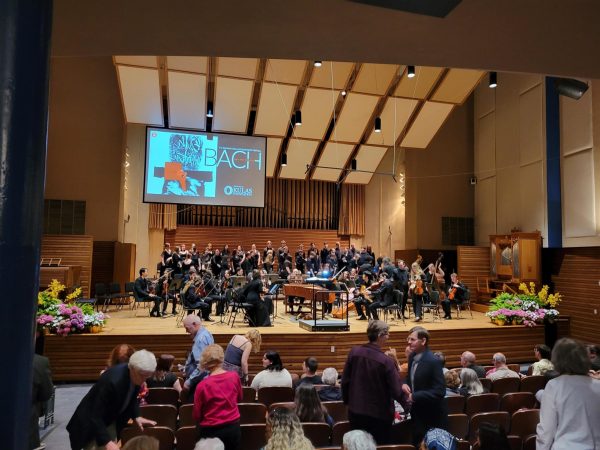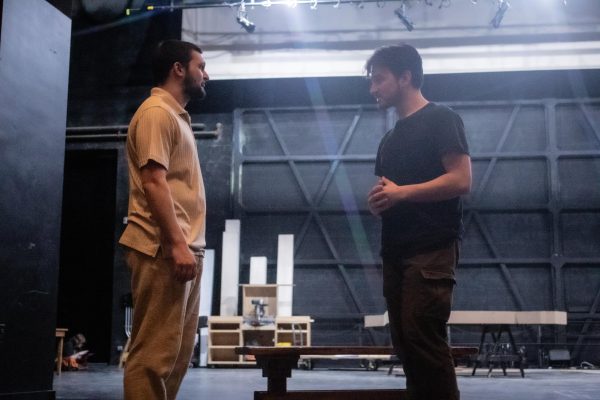Ritter Library receives podcasting grant
This semester, technology at Ritter Library continues to grow due to receiving a grant for podcasting equipment and training.
This grant is through Team Tech to Go, who are participants in the ILEAD USA 2019. ILEAD USA is a technology and leadership program that uses past information to aid ongoing and future projects for libraries.
The goal of this grant is to help create structure in the training and implementation of technology for future library users. The library must keep track of the use of equipment and the training process as part of the grant.
The library received an 8 channel Podcast mixer, two handheld wired microphones, two tripods with shock mounts and headphone amplifiers, and a USB 2.0 Cable on Sept. 16.
Ritter library will be using this equipment to create more oral records of alumni, students, and staff experiences.
“This is taking things to the next level in terms of digital scholarship. So, the goal is to share the heritage of BW with not just the local community, or interested Alumni, but the world” said Charles Vesei, director of Ritter library.
The oral telling of stories and information has been a traditional way of life for hundreds of years.
“The unwritten wisdom and history from these stories that have been passed down for generations through communication,” Ritter librarian John Curtis said. “Moving into the technological age, the use of machines and now digital devices to record and catalog oral stories have become a part of preserving oral history.”
“Oral history has a greater impact than the written word; the inflection, wavering voice, and the emotional state of the speaker increases the effect of the stories. The ability to videotape raises the intimacy and reality of the information and the speaker even more,” said Kieth Peppers, university archivist.
“Recording oral stories allows the voices of the average person to be heard,” Curtis said. “Oral stories are not a definitive art; they change based on the level of factuality, the perspective of those telling the story, and the world that receives it.”
He continues this thought by saying: “Reflecting on the past is important for both the listener and speaker. They allow perspective, which creatines better choices and insight on future endeavors.”
“I can count several people that I met in my life that were just incredibly influential on the directions I took. Some I met for real, some I encountered though what they left behind,” said Curtis.
The first oral recording with the new technology happened only a few short weeks ago with two Baldwin Wallace Alumni who shared personal stories from their time at the university.
The setup and recording process took around five hours in total.
Media and the data forms that they come in are a constantly changing field. The foresight and ability to adapt is a necessity.
Adapting formats is an issue as said by Peppers, the format that a file might be transferred to can become obsolete.
Currently there are many formats that the library owns that are unable to evolve because they lack the ability to be played back.
“Everyone has a story to tell, but if you don’t save it and share it with other people, it dies with you,” said Peppers.
It is through the internet that Peppers is posting oral histories recorded by his own students on to a YouTube channel called BW Oral Histories that can be found at tinyurl.com/y4dutu6l.
Although Ritter offers technology for both students and professors, this equipment will only be used to keep oral records.
The grant requires that library faculty receive training on the new equipment and that all uses are documented.
The Exponent is looking for financial contributions to support our staff and our newsroom in producing high-quality, well-reported and accurate journalism. Thank you for taking the time to consider supporting our student journalists.












































